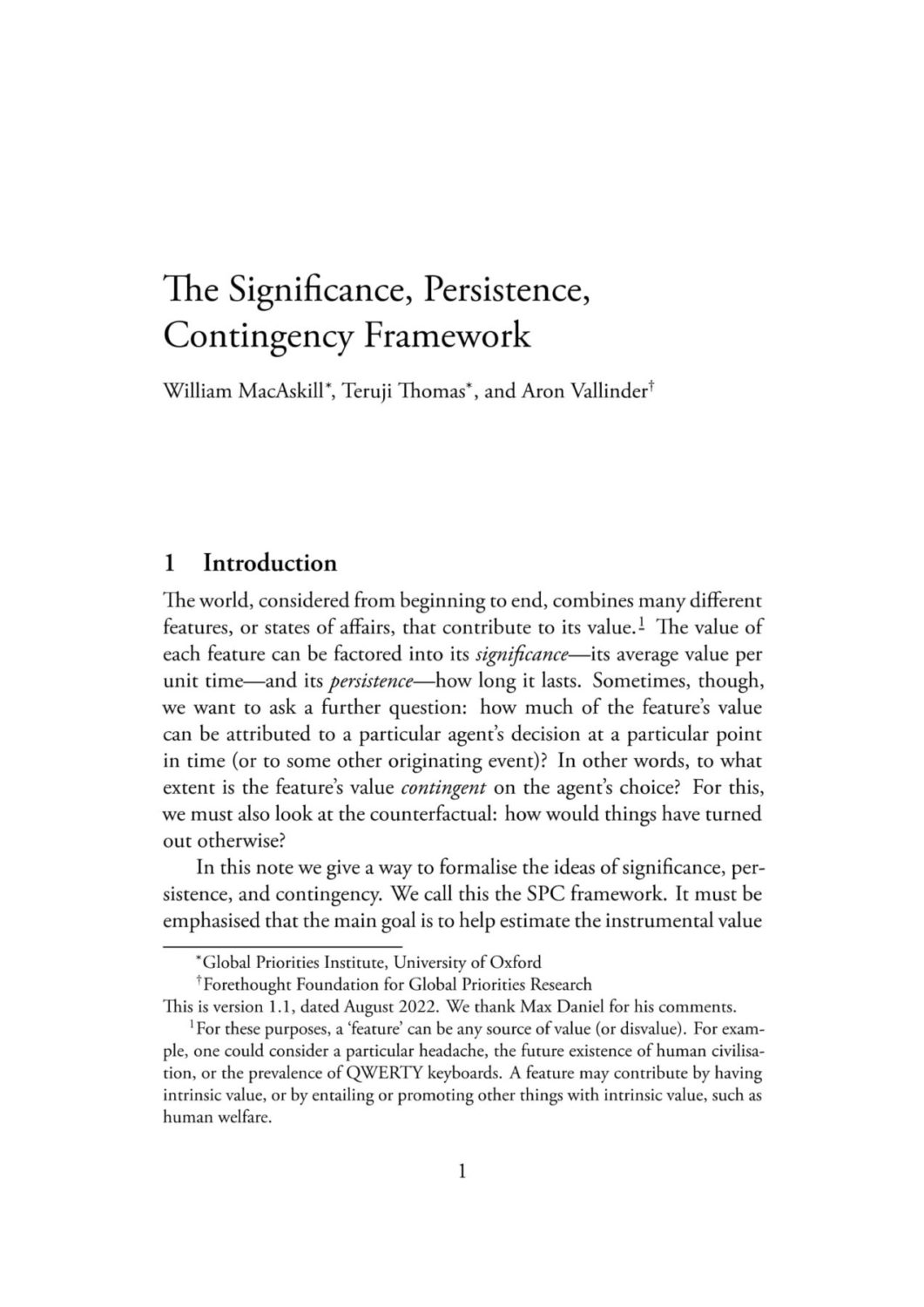The Significance, Persistence, Contingency Framework
William MacAskill, Teruji Thomas (Global Priorities Institute, University of Oxford) and Aron Vallinder (Forethought Foundation for Global Priorities Institute)
GPI Technical Report No. T1-2022
The world, considered from beginning to end, combines many different features, or states of affairs, that contribute to its value. The value of each feature can be factored into its significance—its average value per unit time—and its persistence—how long it lasts. Sometimes, though, we want to ask a further question: how much of the feature’s value can be attributed to a particular agent’s decision at a particular point in time (or to some other originating event)? In other words, to what extent is the feature’s value contingent on the agent’s choice? For this, we must also look at the counterfactual: how would things have turned out otherwise?
Other working papers
Is In-kind Kinder than Cash? The Impact of Money vs Food Aid on Social Emotions and Aid Take-up – Samantha Kassirer, Ata Jami, & Maryam Kouchaki (Northwestern University)
There has been widespread endorsement from the academic and philanthropic communities on the new model of giving cash to those in need. Yet the recipient’s perspective has mostly been ignored. The present research explores how food-insecure individuals feel and respond when offered either monetary or food aid from a charity. Our results reveal that individuals are less likely to accept money than food aid from charity because receiving money feels relatively more shameful and relatively less socially positive. Since many…
Non-additive axiologies in large worlds – Christian Tarsney and Teruji Thomas (Global Priorities Institute, Oxford University)
Is the overall value of a world just the sum of values contributed by each value-bearing entity in that world? Additively separable axiologies (like total utilitarianism, prioritarianism, and critical level views) say ‘yes’, but non-additive axiologies (like average utilitarianism, rank-discounted utilitarianism, and variable value views) say ‘no’…
AI alignment vs AI ethical treatment: Ten challenges – Adam Bradley (Lingnan University) and Bradford Saad (Global Priorities Institute, University of Oxford)
A morally acceptable course of AI development should avoid two dangers: creating unaligned AI systems that pose a threat to humanity and mistreating AI systems that merit moral consideration in their own right. This paper argues these two dangers interact and that if we create AI systems that merit moral consideration, simultaneously avoiding both of these dangers would be extremely challenging. While our argument is straightforward and supported by a wide range of pretheoretical moral judgments, it has far-reaching…

